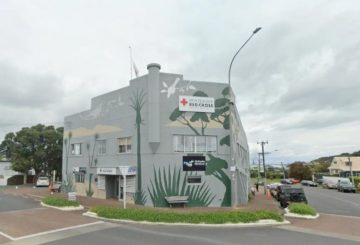A school in Whakatāne, New Zealand, is celebrating its largest group of indigenous doctoral graduates. The streets were filled with traditional songs and dances as the students, dressed in their graduation attire, walked through the town. The school, Te Whare Wānanga o Awanuiārangi, held a ceremony on May 10 to acknowledge the hard work of its students and celebrate a record year for the number of indigenous doctoral graduates.
The school’s Chief Executive, Professor Wiremu Doherty, said it was remarkable to be awarding nearly 2,500 qualifications, with 14 of these at the doctoral level. He said graduation was a time to celebrate the students’ journey and the commitment they made to their education.
The day began with a traditional Māori welcome at Te Mānuka Tūtahi marae, followed by a walk through the town and then a return to the marae for the ceremony. Among the qualifications awarded was a Distinguished Fellowship in Education to Adrienne von Tunzelmann for her contributions to community development, governance, and education.
Te Whare Wānanga o Awanuiārangi is a tertiary education provider that offers programs from entry-level courses to doctoral studies. It is the only school in New Zealand to offer doctoral studies with a focus on indigenous learning methods and programs.
Professor Doherty said they were proud to be at the forefront of indigenous studies, not only in New Zealand but also internationally. Among the guests at the graduation were a group from the Munarra Centre for Regional Excellence in Victoria, Australia, who had come to learn more about the indigenous learning model used by the school.
In addition to the graduation, the school also held a symposium for the doctoral graduates to present their research to their community. The research topics ranged from the impacts of removing children from families, to river protection, and identity politics.
The school was founded in 1992 and is the only one in New Zealand that offers programs from foundation studies to Doctorates of Philosophy. It has campuses in Whakatāne, Auckland, and Whangārei and has more than 5,900 students, including indigenous Doctoral students from Washington state and Hawaii.

















































-660x440.jpg)











